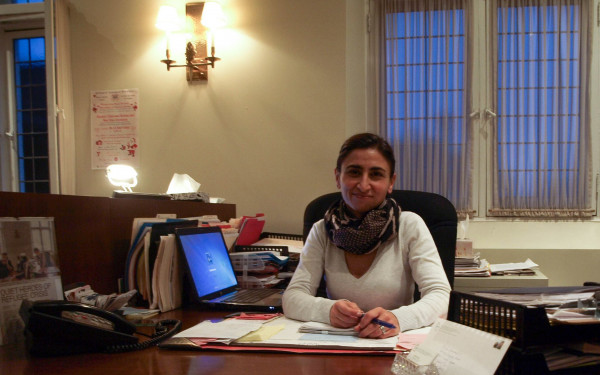Concordia Group Seeks Funding to Support Refugees
World University Service of Canada Wants Club Status
Concordia’s chapter of the Student Refugee Program is seeking a boost.
The Student Refugee Program, run by the non-profit World University Service of Canada, matches refugee students with Canadian universities and provides a network of financial support and guidance. Their current goal: a fee-levy from the student body. Doing so would offer a greater network of support to future student refugees. WUSC is a non-profit organization that offers educational services to developing countries. The SRP is their flagship program.
While the grassroots organization at Concordia works directly with WUSC, it is not yet an official WUSC chapter. This distinguishes it from the 61 Canadian universities, colleges and other educational institutions that have an SRP, including McGill and Bishop’s.However, one member of Concordia’s WUSC Local Committee is hoping that will change by the end of the semester.
“Helping a refugee to come continue their education is quite dear to my heart,” said graduate student and volunteer Farida Abla. She is leading the initiative to obtain a fee-levy for Concordia’s WUSC chapter.
To obtain a fee-levy, the student body must vote in a referendum. Before that happens, the committee will register as a student organization with the Dean’s Office, a process currently underway.
“Helping a refugee to come continue their education is quite dear to my heart.” – Farida Abla
Abla said that she would like for all of this to be accomplished before the end of the semester, though the actual process may take longer.
Dean of Fine Arts Rebecca Duclos said sponsoring a student refugee for just one year can cost upwards of $20,000 to $30,000. Duclos founded the Fine Arts Student Refugee Fund, through which her faculty sponsors one Syrian student with some help from WUSC.
This is not the first time a WUSC Local Committee at Concordia has sought funding, according to Michelle Manks, WUSC’s Senior Manager of the SRP and head of Campus Engagement. She has worked directly with Concordia in the past. According to Manks, the group’s application for a fee levy was declined in 2014 for not properly outlining its budget. She said waning interest and the graduation of key student volunteers then led to the group’s decline.
“The students got too busy and they graduated, and then they didn’t have an incoming group of students to take on the responsibilities, and that was sort of the end of it,” she said. It was only in the 2015- 2016 academic year that interest in the project was revived.
Concordia’s first student refugee, a Rwandan who was displaced from Kenya, arrived at Concordia in the 1990-1991 academic year, Manks said.
Duclos described supporting the sponsored student, saying that “we had to open up bank accounts [for her], we had to get metro cards, we had to get bedding. She literally came with a couple suitcases.”
They also had to help her find school supplies, clothing, and grocery stores that carry familiar ingredients.
Until now, this responsibility has fallen on Duclos, her volunteer staff and a small group of students.
Duclos said an official WUSC chapter would mean greater student involvement in the project. “It’s great for a student to have a whole group of people on the ground who will help to settle them and welcome them and check in with them.”
Previously this article stated that gaining a fee-levy would allow WUSC Concordia to gain official recognition from their parent organization. However, WUSC Concordia already has been officially recognized by its parent organization, regardless of the fact that they do not have a fee-levy. The Link regrets the error.

_900_675_90.jpg)


_600_375_90_s_c1.jpg)
_600_375_90_s_c1.jpg)
_600_375_90_s_c1.jpg)
